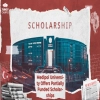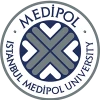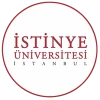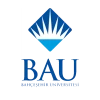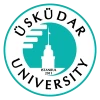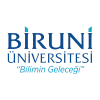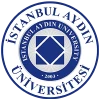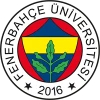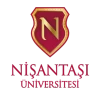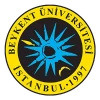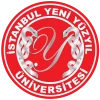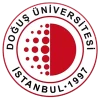Pharmacology, one of the most important branches of medical science, deals with drugs and medicines, their uses, and their effects on the human body, Students Study Pharmacy in Turkey have the opportunity to contribute to the development of new medicines, improve existing treatments, and ensure medication safety and efficacy.
As one of the most sought-after academic disciplines globally, pharmacy attracts students due to its significant future potential and vital role in healthcare. It is a standalone field that garners substantial attention for its contributions to medicine development, treatment strategies, and overall human health improvement.

The Turkish Pharmacy Education System
Turkey has emerged as a preferred destination for international students wishing to study pharmacy in turkey, thanks to its world-class universities that offer advanced educational programs, These programs seamlessly blend theoretical knowledge with practical applications in laboratories and scientific research.
Turkish universities provide a modern educational environment equipped with state-of-the-art facilities and are led by highly experienced professors in the field of pharmacy. This creates excellent educational opportunities that cater to the academic interests of students and support their future professional success. Additionally, Turkey offers high-quality, affordable education combined with a rich and diverse cultural experience.
Through intensive research programs and advanced scientific experiments, Turkish universities contribute significantly to the pharmaceutical field, enhancing their global reputation as leaders in this sector. Students in Turkey become part of a dynamic academic community that offers extensive learning and professional development opportunities.
In this article, provided by Turkey Campus for Counseling and Educational Services in Turkey, we will offer a comprehensive overview of everything you need to know about Study Pharmacy in Turkey.
Why choose to study pharmacy in Turkey?
In recent years, Turkey's educational and academic standards have significantly advanced, with many Turkish universities ranking among the world's best. Pharmacy is no exception to this development, driven by several key factors:
1. Highly Qualified Academics
Turkish universities boast a distinguished group of academically and practically qualified professors who are leaders in their fields. These educators actively participate in scientific research and international conferences, ensuring that students receive an up-to-date and comprehensive education. Professors not only deliver theoretical lectures but also engage in hands-on training, supervising experiments and research projects to enhance students' practical skills.
2. Advanced Laboratories
The laboratories in Turkish universities are equipped with cutting-edge technology, providing students with the tools to conduct scientific experiments effectively. This includes advanced analytical instruments, scientific simulations, and diagnostic tools, which enable students to gain practical insights into their studies. This technological environment fosters innovation and enhances students' abilities to apply scientific theories practically.
3. Intensive Practical Training
Pharmacy programs in Turkey incorporate rigorous practical training in hospitals and university medical centers. This allows students to apply classroom knowledge in real-world settings under the supervision of medical professionals. Such training helps students develop the skills necessary for clinical and laboratory environments, ensuring they are well-prepared for their professional careers.
4. Advanced Postgraduate Programs
Turkish universities offer advanced postgraduate programs in pharmacy, including Master's and Doctoral degrees. These programs allow students to specialize in fields such as clinical pharmacy, industrial pharmacy, and phytopharmacy. Designed to enhance research capabilities and professional skills, these programs prepare students for leadership roles in academia and industry.
5. Language Options
International students in Turkey can choose to study in either English or Turkish, facilitating a better understanding of their subjects. This linguistic flexibility allows students to select the language they are most comfortable with, whether they wish to improve their Turkish skills or take advantage of English-language programs.
6. Affordable Tuition
Compared to European and American universities, Turkish universities offer affordable tuition fees, making higher education accessible to a wide range of international students. Despite the lower costs, Turkish universities maintain high educational standards, regularly updating their curricula to keep pace with the latest developments in pharmacy.
7. Low Living Costs
Turkey offers a relatively low cost of living, making student life more affordable. International students can find adequate housing, diverse and healthy food options, and public transportation at reasonable prices, allowing them to focus more on their studies.
8. Scholarships and Discounts
Turkish universities provide various scholarships and discounts for international students, which may be based on academic excellence, financial need, or research achievements. These financial aids facilitate access to different educational programs and alleviate the financial burden on students.
9. Extensive Employment Opportunities
Pharmacy graduates from Turkish universities have numerous employment opportunities in research centers, hospitals, pharmaceutical companies, and academic institutions. Turkish universities help students build strong professional networks through partnerships with medical and industrial organizations, making it easier for them to secure jobs after graduation.
10. International Recognition of Degrees
Degrees awarded by Turkish universities are internationally recognized, including in Arab states and in most countries worldwide. This global recognition allows graduates to work or pursue further studies wherever they choose, enhancing the value of Turkish university degrees and attracting many international students.
In summary, Study Pharmacy in Turkey offers a rich and rewarding educational experience. With state-of-the-art facilities, a supportive academic environment, and numerous professional opportunities, Turkish universities provide an ideal setting for aspiring pharmacists to achieve their academic and career goals.
know more: Embracing Turkish Culture as a Student
Duration of pharmacy studies in Turkey

The duration of pharmaceutical studies in Turkey varies depending on the academic level pursued by the student. These levels are divided into three main stages:
1. A Bachelor's Degree
Completing a bachelor's degree in pharmacy in Turkey typically requires five years of study. During this period, students receive a comprehensive education that integrates theoretical knowledge with practical skills, ultimately leading to professional certification as a pharmacist.
The curriculum is meticulously designed to equip students with the specialized knowledge and technical skills necessary in the pharmaceutical field, alongside the development of essential personal qualities for effective professional practice.
2. A Master's Degree
For those wishing to further their education beyond a bachelor's degree, Turkish universities offer a two-year Master's program in pharmacy. This program allows students to deepen their expertise in specific areas of pharmacy and enhance their research and professional capabilities.
3. A Ph.D.
Doctoral studies in pharmacy in Turkey require a commitment of six years. This intensive program is structured as follows:
Five Years of Theoretical Study: This phase covers a broad range of advanced topics in pharmacy, including pharmaceutical chemistry, pharmacology, and clinical pharmacy techniques.
One Year of Practical Training (Year of Excellence): During this final year, students undergo practical training in accredited hospitals and training centers. This hands-on experience enables them to apply their theoretical knowledge in real-world settings, refining their practical skills and preparing them for various professional roles in the field of pharmacy.
This structured approach to pharmaceutical education in Turkey ensures that graduates are well-prepared for their careers, with a solid foundation of knowledge and practical experience.
Recognize: Affordable Living Guide for Students in Turkey 2024
Departments of pharmacy specialization in Turkey
Study Pharmacy in Turkey involves exploring a variety of departments, each offering specialized areas that cater to students' academic and professional interests. The details of each department are as follows:
1. Pharmaceuticals Department
This department focuses on the composition, manufacturing, and development methods of medicines. Students learn to design new medications, test their efficacy and safety, and optimize dosage forms to ensure the best therapeutic outcomes.
2. Medicinal Plants and Drugs Department
Students in this department study the medicinal properties of plants and their applications in the pharmaceutical industry. This includes identifying plants with active compounds, extraction methods, and analyzing their therapeutic benefits. Students gain skills in identifying medicinal plants and developing pharmaceutical products.
3. Clinical Pharmacology Department
This department emphasizes the application of drugs in clinical settings. Students learn how to prescribe medications based on patient conditions for study pharmacy in Turkey and improve drug treatment efficacy while minimizing side effects.
4. Pharmaceutical Analytical Chemistry Department
This department focuses on the chemical analysis of medicines to ensure their quality and efficacy. Students are trained in various analytical techniques, such as chromatography and spectroscopy, to analyze active components and ensure compliance with health standards.
5. Pharmaceutical Technology Department
Focusing on the technological aspects of the pharmaceutical industry, this department teaches students how to develop new techniques to improve production and quality. Students learn to manufacture medicines using advanced techniques and optimize production processes for the highest quality outcomes.
6. Pharmaceutical Microbiology Department
This department studies microbes and their impact on health, as well as their applications in the pharmaceutical industry. Students learn to identify different microbes, understand their role in disease, and develop effective antibiotics to combat them.
7. Technical Pharmacy Department
This department focuses on the application of advanced technologies in drug manufacturing and development. Students study industrial production methods, packaging, and quality assurance to enhance manufacturing efficiency and reduce costs while maintaining drug quality.
8. Nutrition Department
Students in this department explore the relationship between nutrition and health, focusing on how food affects drug efficacy. They learn about the impact of different food elements on human health and how to improve health outcomes through a balanced diet.
9. Medical Drugs Department
This department covers the study of drugs and their medical uses, focusing on understanding drug interactions with the body and developing new treatments for various diseases. Students learn to conduct clinical research and experiments to evaluate new drug efficacy.
10. Pharmaceutical and Biomedical Sciences Department
Combining the study of pharmaceuticals and biomedical sciences, this department aims to understand the effects of drugs on the body. Students explore the biochemical and physiological aspects of medicines and learn to design drugs targeting specific bodily systems.
These diverse departments provide students with opportunities to delve into specialized fields, equipping them with comprehensive and varied knowledge that opens up wide-ranging career prospects in various pharmaceutical domains.
Read also: Your Guide to Turkey's Scholarships
Pharmacy Curriculum in Turkey
The university. However, most Turkish universities offer a core set of courses that focus on essential subjects such as chemistry, biology, pharmaceutics , and pharmacology, These programs typically integrate academic research, vocational training, and the development of pharmaceutical skills, including the identification of legal and ethical issues and patient interaction.
Below is a table listing some of the courses commonly included in Pharmacy Bachelor's programs in Turkey:
|
Academic Year |
Courses |
|
1. First and Second Year |
- General Chemistry: Study of the composition and structure of matter, chemical reactions, and governing laws. - Organic Chemistry: Study of the composition and structure of organic compounds, their properties, and reactions involved. - Biology: Study of the structure and functions of living organisms, principles of microbiology, and genetics. - Physics: Study of physical phenomena such as motion, force, energy, and electricity. - Mathematics: Study of basic mathematical concepts such as algebra, calculus, and differential equations. - Turkish Language: Advanced learning of the Turkish language to enable students to understand materials and communicate with patients and the community. - Medical English: Learning medical and scientific terminology in English to communicate with the internationalMedical education system in Turkey. |
|
2. Third and Fourth Year |
- Analytical Chemistry: Study of techniques for analyzing chemical compounds. - Clinical Biochemistry: Study of chemical reactions in the body and how to diagnose diseases using these reactions. - History and Terminology of Pharmaceuticals: Understanding the development of pharmaceuticals and the terms used in this field. - Basic Pharmaceutical Sciences: Providing the theoretical foundations of pharmacy. - Pharmaceutics: How to prepare medications in various forms. - Pharmacology: Study of the properties of drugs and how they work in the body. - Pharmacy and Basic Medical Sciences: Integrating pharmaceutical knowledge with basic medical sciences. - Pharmaceutical Technology: Study of methods for manufacturing medications and ensuring their quality. |
|
3.Fifth Year (Last Two Years) |
- Clinical Pharmacy: Application of pharmacology in patient treatment, training students to prescribe medications. - Pharmaceutical Chemistry: Study of the composition and structure of drugs, analysis, and development of new drugs. - Pharmacognosy: Study of natural and synthetic sources of drugs and methods of extraction. - Anatomy: Study of the structure and organs of the human body. - Physiology: Study of the functions of body organs and how they interact. - Public Health and Epidemiology: Study of factors affecting public health and methods for disease prevention. - Pharmacy Law: Study of laws and regulations governing the pharmacy profession. - Pharmacy Ethics: Study of the ethical principles pharmacists must follow. - Practical Training: Students undergo practical training in community pharmacies and hospitals. |
|
4. Sixth Year (Internship) |
- Practical Training in Hospitals and Training Centers: Application of theoretical knowledge in a practical environment under the supervision of specialists. |
Know more about: Discover Turkish Language Courses for International Students
Top universities for Study Pharmacy in Turkey
Turkey boasts a number of prestigious universities that offer outstanding pharmacy programs. Here is an overview of some of the best universities for Study Pharmacy in Turkey that include on Best pharmacy colleges in Turkey:
1. Bahçeşehir University

Founded in 1998 and located on the European side of Istanbul, Bahçeşehir University ranks 921st globally and 14th nationally. It is known for its international exchange programs with prominent universities such as New York University, Harvard, Stanford, Berlin Technology, and the Massachusetts Institute of Technology. The university's COOP project links academic education with the labor market, providing students with real-world experience during their studies. Bahçeşehir University offers a Bachelor of Pharmacy program in English with an annual tuition fee of $15,000.
2. Altınbaş University
Established in 2008 in Istanbul, Altınbaş University has quickly developed into a global research university with a strong focus on medical disciplines, including pharmacy, medicine, and dentistry. The university has agreements with over 120 universities in 23 countries and partnerships with more than 50 companies. It offers a Bachelor of Pharmacy program in English, with an annual tuition fee of $10,000.
3. Istinye University

Founded in 2015 and located on the European side of Istanbul, Istinye University is an academic institution that emphasizes scientific research. It benefits from 29 years of knowledge and experience from the MLP Care Medical Group, which operates one of the largest private hospitals in Turkey. Istinye University offers a Bachelor of Pharmacy program in both Turkish and English, with annual fees of $10,260 for the Turkish program and $11,286 for the English program.
4. Istanbul Medipol University

Established in 2009 as a medical research university, Istanbul Medipol University has expanded to include several disciplines. It was founded by Dr. Fahrettin Koca, the current Turkish Minister of Health, who also owns the Medipol Foundation, which encompasses universities, hospitals, and laboratories. The university offers a Bachelor of Pharmacy program in both Turkish and English, with annual tuition fees of $18,000 for the Turkish program and $20,000 for the English program.
5. Istanbul Aydın University
Located in the heart of Istanbul, Istanbul Aydın University is a prestigious institution known for its modern methodology focused on interaction and practical application. The university is renowned for its evolving curriculum and emphasis on high-quality academic education. It promotes practical training courses, providing students with excellent opportunities to connect with employers and gain practical experience.
These universities represent the pinnacle of pharmaceutical education in Turkey, offering an advanced educational environment and excellent career opportunities for ambitious students. Turkey stands out as an ideal destination for studying pharmacy, making it a top choice for those pursuing a successful career in this vital field.
Steps to apply for pharmacy studies in Turkey
Turkey Campus is dedicated to simplifying the application process for Study Pharmacy in Turkey, offering clear and structured guidance to international students. We aim to streamline university admission and scholarship procedures, ensuring that applicants meet all requirements for pharmaceutical studies in Turkey. Here are the steps students can follow:
1. Visit the Turkish University Website
The initial step entails visiting the website of the Turkish university of interest and creating a new account. This account will serve as a platform for students to navigate through the subsequent stages of the application process.
2. Register a New Account
Upon accessing the university website, students are required to register a new account using their personal information and email address. This account will serve as their primary communication channel for follow-ups and application-related correspondence.
3. Complete the Application Form
After successfully creating an account, students must diligently fill out the application form, providing comprehensive personal and academic details. Accurate completion of this form is crucial for evaluating eligibility for the program.
4. Upload the Required Documents
The next step involves uploading all necessary documents, including academic certificates, letters of recommendation, curriculum vitae, and a statement of purpose for studying, Ensuring the completeness and validity of these documents is essential for application acceptance.
5. Apply for admission or a scholarship
Once the documents are uploaded, applicants can proceed to apply for admission or a scholarship through the university's electronic system. Careful review of the application for accuracy and completeness is recommended.
6. Submit Applications to Universities
Simultaneously with the scholarship application, students should directly apply to the Turkish universities of their choice. This includes completing the application form for each university and uploading the required documents as per the university's specific requirements.
Turkey Campus provides unwavering support to students throughout this process, offering free counseling services to ensure proper guidance. Our aim is to assist students in submitting thorough and effective applications, thereby enhancing their chances of admission to pharmacy colleges in Turkey to esteemed Turkish universities and securing scholarships.
Admission requirements in Turkish pharmacy colleges 2024
In order to enroll in a Pharmacy Study visa in Turkey, international students are required to fulfill a set of admission criteria established by Pharmacy Universities in Turkey, including eligibility standards for full scholarships. These prerequisites encompass:
1. General Secondary Education
Applicants must attain a minimum cumulative grade of 60% in their general secondary education. Some universities may impose higher thresholds, particularly in subjects like chemistry and biology. Therefore, students must ensure compliance with all the specific requirements outlined by their chosen universities.
2. University Entrance Examination
Universities administer an entrance examination designed to evaluate students' aptitude and knowledge, ensuring their preparedness for the academic program. Typically, the examination covers fundamental science subjects such as chemistry, biology, and mathematics. To prepare for the test, students should study relevant subjects and utilize available educational resources.
3. Language Proficiency
Students must demonstrate proficiency in the language of instruction, whether it is English or Turkish. They can submit internationally recognized language certificates such as TOEFL or IELTS for English proficiency, or TÜMER for Turkish proficiency. Proficiency in the language is essential to facilitate comprehension of lectures, active participation in academic discussions, effective understanding of instructional materials, and interaction with peers and faculty members.
4. Language Studies
In cases where students lack proficiency in the required language, universities offer language study programs for an additional year before commencing the academic program. These programs consist of intensive language courses tailored to enhance students' language skills to the required level. This presents an excellent opportunity for students to integrate into the cultural and academic milieu of the university and the country.
These admission requirements for pharmacy studies in Turkey underscore Istanbul University's commitment to delivering high-quality education to international students interested in medical specializations in turkey, By ensuring full academic and linguistic readiness, students can capitalize on the myriad academic and professional opportunities available in Turkey.
Admission documents for Study Pharmacy in Turkey
International students seeking to pursue pharmaceutical studies at private universities in Turkey must furnish a comprehensive set of documents to support their application and ensure compliance with all academic and administrative prerequisites. The requisite acceptance papers encompass:
1. Secondary School Certificate
The original general secondary school certificate or its equivalent must be provided. This document serves as proof of successful completion of secondary education and must be duly certified by the relevant authorities to guarantee its acceptance by Turkish universities.
2. Transcript of Grades
Students are mandated to furnish a detailed transcript delineating the subjects studied at the secondary level along with the corresponding grades attained. The assessment of grades aids in evaluating the student's academic performance and determining eligibility for the study program.
3. Passport
A valid passport is essential for identification purposes and verification of the student's nationality. The passport must remain valid for the entire duration of the study period in Turkey.
4. Passport-Sized Photographs
Up-to-date passport-sized photographs are required for registration purposes, the issuance of student cards, and other administrative procedures. These photographs must be in color with a white background, adhering to the admission criteria of pharmaceutical colleges in Turkey.
5. Email Address
Students must furnish an active email address to facilitate official communication with the university. This email address will serve as the primary channel for receiving acceptance notifications, examination schedules, and other pertinent updates related to the study program.
Thorough and timely submission of these documents ensures the seamless processing of applications and enhances the prospects of admission to Turkish pharmaceutical colleges
Unlock Turkish Education: Your Step-by-Step Guide to Apply
Cost of Study Pharmacy in Turkey
Turkey stands as a renowned destination for pursuing pharmaceutical studies, boasting a diverse array of programs in this field. However, the cost of Study Pharmacy in Turkey varies significantly among universities, contingent upon several factors such as institutional status (public or private) and the language of instruction.
The distinction between private and public universities plays a pivotal role in determining the financial implications of pharmaceutical education. Private universities, renowned for their advanced academic infrastructure and supplementary services, typically entail higher costs. Additionally, programs conducted in English often incur greater expenses due to the global demand for such programs and the associated provision of English-language services.
For instance, tuition fees for pharmaceutical studies at private universities in Turkey typically range from $7,000 to $20,000 per annum, contingent upon the institution and the program offered. Nevertheless, students have the opportunity to explore various financial avenues, including scholarships, to alleviate the financial burden and facilitate access to education.
University housing for pharmacy studies in Turkey
Turkey offers a diverse array of university housing options for students pursuing pharmacy studies, catering specifically to the needs and preferences of Arab students. This flexibility allows them to select an environment that best suits their personal requirements, enhancing their overall university experience in Turkey. The types of university housing available include:
1. State Housing (KYK)
The Turkish Youth and Sports Organization (KYK) provides university housing services to students through a range of residential buildings equipped with fully furnished housing units. These state accommodations offer numerous benefits, including safety, comfort, and a conducive academic environment.
2. Private Housing
Turkey also offers numerous private housing options, such as furnished apartments and shared apartments. Students can choose accommodations that meet their specific needs, whether close to the university or in other parts of the city.
3. Foundation Housing (Vakıf)
Various foundation institutions in Turkey offer affordable university housing, fostering an active community environment. These institutions provide additional services, including cultural and sports activities, enriching the student experience.
4. Student Apartments
Several private companies and real estate developers offer specially designed housing for students, featuring modern amenities and proximity to universities and essential facilities. These apartments provide a contemporary, comfortable living space that encourages interaction and communication among students.
These varied housing options ensure that pharmacy students in Turkey can find a suitable living arrangement that supports their academic and personal growth.
Read also: Study Without Worries: Top Safe Cities for International Students in Turkey
Student life in Turkey
Student life in Turkey is characterized by its vibrancy and diversity, offering a plethora of opportunities for recreation and social engagement. Below, we outline key facets of this enriching experience:
1. Recreational Activities and Social Engagement
Universities in Turkey foster a vibrant student community through a variety of cultural, recreational, and sports activities. These include cinema screenings, theatrical performances, sports trips, and competitions, all aimed at fostering communication and camaraderie among students. The support for student communities and the organization of events further enhance the social fabric on campus.
2. Cultural Exploration Beyond Campus
Turkey provides ample opportunities for students to explore its rich cultural heritage and diverse recreational offerings. From attending festivals and concerts to shopping in traditional markets and modern stores, students can immerse themselves in the vibrant cultural tapestry of Turkey. Additionally, the country's abundant natural beauty, showcased in parks and scenic spots, offers opportunities for outdoor exploration and relaxation.
3. Healthcare Facilities
Turkish universities prioritize the well-being of their students by providing access to high-quality healthcare facilities. Students benefit from comprehensive health insurance coverage, ensuring access to various medical services at reduced costs, thus ensuring their physical well-being throughout their academic journey.
By choosing Turkey Campus, students can seamlessly integrate into Turkey's dynamic student community and enjoy a unique educational experience. Accredited agents facilitate the university admission process without additional fees, providing students with guidance and support every step of the way. This ensures that students can fully immerse themselves in their studies and make the most of their time in Turkey.
Essential Skills for Pharmaceutical Studies
Contemplating a career in pharmacy necessitates self-assessment by addressing the following questions:
1. Is your aptitude strong for mathematics and the sciences? Pharmacy programs entail intensive study of these subjects.
2. Do you enjoy interacting with people? Most pharmacy positions require substantial interaction with patients who have serious questions about their health and treatment. If you prefer behind-the-scenes work, there are opportunities in laboratory research.
3. Are you detail-oriented? Your work directly impacts the lives of individuals you interact with, necessitating precision and caution in every aspect of your job.
4. Do you enjoy desk work? If you prefer office-based work, pharmacy might not be the optimal choice. Pharmacists require continuous interaction with patients, physicians, sales representatives, and others, necessitating mobility and ongoing engagement.
5. Do you prefer flexible work hours? Pharmacists often have the flexibility to set their work schedules, especially if they run their own pharmacies.
Suitable Personal Skills for Pharmacy Students:
Academic Excellence: Especially in subjects like mathematics, chemistry, and biology.
Strong Memory: Pharmacy studies rely on memorizing numerous medical terms.
Desire to Help Others: A strong inclination towards assisting others is essential.
Precision and caution: Ensure attention to minute details to avoid errors.
Responsibility Bearing: Preparedness to shoulder significant responsibilities associated with working in pharmacy.
Kindness and Patience: Skills in dealing with patients politely and patiently.
Organization and Planning: Ability to maintain work and medication organization.
Performing Under Pressure: Capability to efficiently work under high-pressure conditions.
Possessing these skills enhances success in pharmacy studies and paves the way for a distinguished career in this vital field.
The Significance of Pharmaceutical Studies
The field of pharmacy stands as one of the most crucial scientific disciplines globally, experiencing a notable surge in demand. This specialization offers students the opportunity to engage in a vital area that directly influences societal health and well-being. Several compelling factors underscore the importance of pursuing pharmaceutical studies:
1. Rising Demand
Pharmacists are increasingly indispensable, with a ubiquitous presence in both urban centers and remote locales. The proliferation of pharmacies underscores the soaring demand for pharmaceutical services. Moreover, the remuneration for pharmacists is lucrative, with average incomes reaching US$ 128,000 annually in the United States in 2019.
2. Career Stability
Pharmaceutical specialization ensures robust job opportunities after Study Pharmacy in Turkey, as the acquired skills are highly specialized and globally sought-after. Many graduates secure employment within six months of graduation, bolstering prospects for long-term career stability.
3. Diverse Career Opportunities
The field of pharmacy offers a plethora of career avenues, spanning pharmacies, hospitals, pharmaceutical companies, and academic research, providing graduates with diverse professional trajectories.
4. Flexible Work Arrangements
Pharmacy professions afford flexibility in work schedules, enabling pharmacists to strike a harmonious balance between their professional commitments and personal life.
5. Affordable Degree Attainment
Students pursuing pharmacy degrees in turkey benefit from relatively affordable tuition costs compared to other medical disciplines, rendering it an economically attractive educational pursuit.
In summary, pharmacy emerges as an ideal choice for students seeking not only professional stability and lucrative remuneration but also a fulfilling avenue to contribute meaningfully to public health initiatives.
Tips for students wishing to study pharmacy in Turkey
For students aspiring to a promising future in the field of pharmacy in Turkey, here are some essential guidelines to consider:
1. Choose the Right University
Your educational journey begins with a crucial step: selecting the appropriate university. Conduct comprehensive research on universities in Turkey, examining their reputation and the educational programs they offer in medicine and pharmacy.
2. Understand the Admission Requirements
Ensure your qualifications and grades align with the admission requirements of the chosen university. Also, prepare to pass the required entrance examinations.
3. Language Preparation
If you are not proficient in Turkish or English, early preparation for recognized language tests such as TOEFL, IELTS, or YÖS is necessary.
4. Financial Preparedness
Calculate the costs of studying and living in Turkey accurately, and establish a financial plan that meets your needs and expected expenses.
5. Health Insurance
Don't forget to obtain comprehensive health insurance covering the necessary medical services during your study period in Turkey.
6. Explore Student Life
Discover university life in turkey for arab students by visiting campus websites and getting acquainted with available student housing in turkey and activities.
7. Connect with Current Students
Engage with current students at the universities you're interested in applying to, and inquire about their academic experiences and tips for new students.
By following these tips, you'll be able to develop a well-rounded plan and prepare effectively for your educational journey in the field of pharmacy in Turkey.
Know also: Effortless Guide to Studying in Turkey on a Visa
In conclusion, embarking on a journey to study pharmacy in Turkey offers unparalleled opportunities for academic and personal growth, Turkey's esteemed universities, renowned for their advanced programs and distinguished faculty, provide an enriching environment for aspiring pharmacists, From state-of-the-art laboratories to immersive practical training, students are equipped with the skills and knowledge necessary to excel in this vital field.
As you consider taking this significant step towards your future, Turkey Campus stands ready to guide you through every stage of the process. Our dedicated team offers expert advice and personalized assistance to ensure a seamless transition into Turkish academia. Whether you seek information on university options, admission requirements, or student life, Turkey Campus is your trusted partner.

